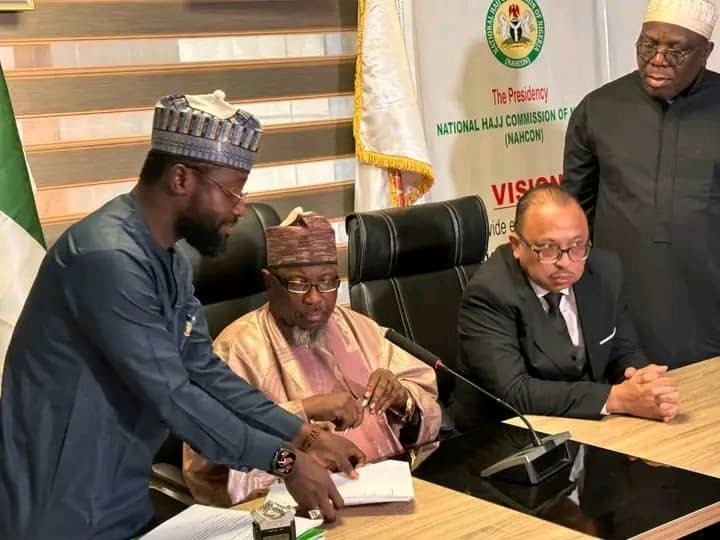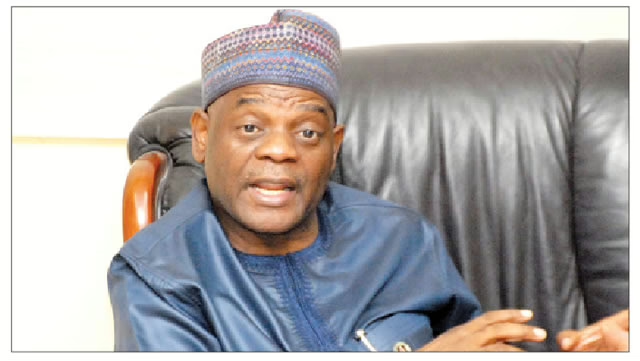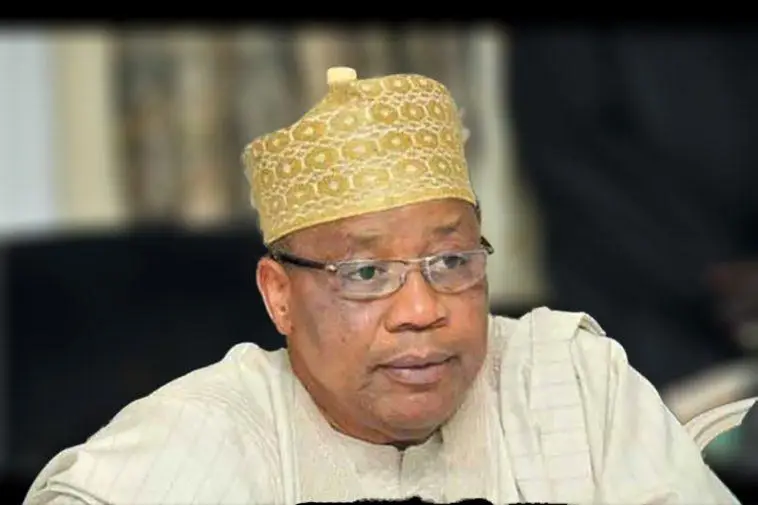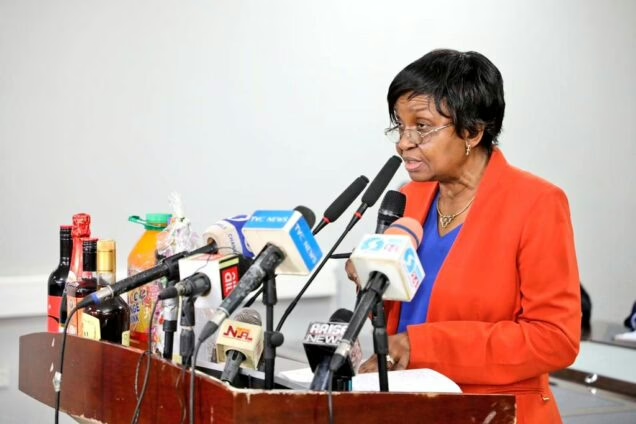The House of Representatives has introduced two bills aimed at addressing budget presentation delays by the president and governors.
They also seek to limit the number of supplementary budgets passed annually to bridge funding gaps.
The bills, sighted by our reporters, are under review by the House Ad-hoc Committee on Constitution Review, chaired by Deputy Speaker Benjamin Okezie Kalu.
@media only screen and (min-width: 992px){#div-vi-1716478739{width:728px !important;height:90px !important}}
Only one supplementary budget
Sponsored by Reps Mansur Manu Soro and Adamu Hashimu Ranga, one of the bills seeks to restrict supplementary budgets to a single instance per financial year.
Titled: “A Bill for an Act to Alter the Constitution of the Federal Republic of Nigeria, 1999 to Provide for the Consideration of Not More Than One Supplementary National Budget in Addressing Funding Gaps Arising from the Existing Appropriations Act,” the proposal aims to amend Section 81 of the Constitution by introducing a new subsection, 4(C), which states:
“Provided that there shall not be more than one supplementary budget in addressing the funding gaps identified in the existing Appropriation Act.”
The explanatory memorandum highlights the bill’s goals of enhancing transparency in public sector budgeting, reducing the economic impact of multiple supplementary budgets, and streamlining the budgetary process.
Timelines for budget presentation
Sponsored by Reps Mansur Manu Soro and Emeka Martins Chinedu, the second bill proposes amendments to ensure timely submission of budget estimates.
Titled: “A Bill for an Act to Amend the Constitution of the Federal Republic of Nigeria, 1999 to Specify the Period for the Laying of Annual Budget Estimates Before the National and State Houses of Assemblies,” the bill aims to standardise the January–December budget cycle and address issues arising from late budget submissions.
The bill seeks amendments to sections 81(1) and 121(1) of the constitution, requiring the president and governors to present budget estimates at least 60 days before the end of the preceding financial year.
The proposed amendments read: Section 81(1): “The president shall cause to be prepared and laid before the joint session of the National Assembly, at least 60 days before the end of the preceding financial year, estimates of revenues and expenditure of the Federation for the succeeding financial year.”
Section 121(1): “The governor shall cause to be prepared and laid before the House of Assembly, at least 60 days before the end of the preceding financial year, estimates of revenues and expenditure of the State for the succeeding financial year.”
Background
In mid-October, the House passed a resolution urging President Bola Ahmed Tinubu to present the 2025 budget proposal within two weeks, citing Section 11(1)(b) of the Fiscal Responsibility Act, which mandates the timely preparation of a Medium-Term Expenditure Framework (MTEF).
While the president has since submitted the MTEF/FSP for 2025–2027, the budget proposal is yet to be presented to the National Assembly.
The proposed amendments, according to the sponsors, aim to improve fiscal discipline, ensure timely passage of budgets, and align national and state budget cycles with international best practices.
The National Assembly had acceded to President Tinubu’s request to extend the lifespans of the capital components of the 2023 main and supplementary budgets from 30th June to 31st December.
3 budgets at a time
In what is gradually becoming a permanent feature on fiscal space, the Tinubu administration started running multiple budgets simultaneously towards the end of 2023. The administration started implementing three budgets: the N819 billion of the amended 2022 supplementary budget (which Tinubu submitted for amendment on 12th July, 2023); the N21.83 trillion budget for 2023 that it inherited; and the N2.17 trillion supplementary budget for 2023 that it proposed on 31st October.
In the aspect of implementation, records on the website of the Budget Office of the Federation show that the last recorded update was for the third quarter of 2023.
According to the then Director General, Budget Office of the Federation, Ben Akabueze, “The execution of the 2023 budget in the third quarter was very challenging mainly due to significant revenue mobilisation challenges.
A non-profit organisation, BudgiT, has repeatedly condemned the elongation of the implementation period of both the 2023 annual and supplementary budget by the federal government, describing it as an anomaly.
BudgIT argued that, “running the budgets for different years—whether three or four—in the same year is tardy and difficult to justify. It will likely create confusion, limit transparency and narrow the execution bandwidth. This development, unwittingly, reveals something about the government: it is still struggling to get to grips with the basics of diligent planning and implementation.”
Budget extension outside contemplation of constitution- Eze Onyekpere
Barr. Eze Onyekpere, a fiscal governance expert and Lead Director, Centre for Social Justice in his argument, said the 1999 Constitution and the Financial Year Act make it clear that the Nigerian financial year is the period between January 1 and December 31 of every financial year.
“So, federal, state and local government budgets should run for the aforementioned period. For a budget to be extended beyond this period by a purported legislation or executive fiat is outside the contemplation of the Constitution and as such, an abuse of power.
“The practice is a deliberate attempt against accountability and transparency. It is the height of opacity to run two budgets concurrently. For instance, the last budget implementation report on the website of the Budget Office of the Federation is 3rd quarter, 2023. Not a single budget implementation report for 2024. This is against the letter and spirit of the Fiscal Responsibility Act, which by Section 30 demands that budget implementation reports be prepared and published one month after the end of every quarter.
“Common sense demands that for instance, the unimplemented part of the 2024 federal budget should form the foundation of the 2025 federal budget proposal and not to pretend to be implementing 2024 budget in 2025, while also implementing the 2025 budget”, he said.
‘No effective planning of budget’
Reacting to the development, the Executive Director of the Centre for Fiscal Transparency and Public Accountability, Umar Yakubu, said the fact that Nigeria keeps implementing almost three budgets at the same time shows lack of efficiency and planning
“If you check today, we are still implementing the 2022 budget, 2023 budget and some components of the 2024 budget. This shows that we lack planning and efficiency in budgeting. We are not even saying they should implement it fully, but at least up to 70 per cent or 80 per cent but you can’t see that,” he said
Yakubu added that: “The trend shows the weakness on our governance structure and the inability of the National Assembly to keep the Executive on their toes to ensure efficient budgeting,”
Speaking further, he noted that as a Civil Society Organisation, it is difficult to track Nigeria’s budget because it is always duplicated.
On what needs to be done, the ED noted that: “There must be a shift in implementing only expenditure component of budget and leaving capital, and also ensure that revenue leakages are blocked”.
He added that: “There should also be a feasible National Development Plan which is usually 5-10 years that will outline where revenues will come from and how the budget will be effectively implemented”.
 Join Daily Trust WhatsApp Community For Quick Access To News and Happenings Around You.
Join Daily Trust WhatsApp Community For Quick Access To News and Happenings Around You.











